Families of Baldia factory fire victims seek justice in German court
European group helps heirs hold ‘boss company’ responsible
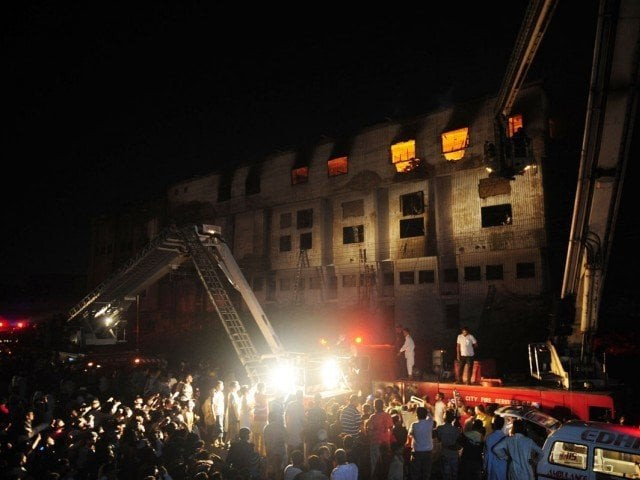
PHOTO: AFP
On September 11, 2012, more than 250 workers lost their lives in Pakistan’s worst industrial disaster at Ali Enterprises garment factory in Karachi. The news also made into the European media for an added reason: the biggest buyer of the ill-fated facility was based in Germany.
Baldia factory fire: ILO to mediate between victims, German company
“It was KiK – a clothing retail giant,” pointed out Dr Carolijn Terwindt, legal adviser to the European Commission for Constitutional and Human Rights (ECCHR), during an interview with The Express Tribune in Karachi. “People in Germany knew [about] it from the start after the incident appeared in newspapers and on TV.”
The ‘boss’ company
Dr Terwindt, whose organisation is helping the affected families pursue the case in Germany, explained how “boss company” KiK procured nearly 70% of Ali Enterprises’ products. “The business relationship goes back years,” she explains referring to KiK as the ‘boss’. “When you control the making of the products, you control everything.”
Investigations into the factory fire exposed several irregularities in the corporate sector. The factory possessed a number of internationally accepted, safety certifications and agreements but the requirements were hardly, or never, implemented.
“The reports of social and safety audits out there [at the factory] appear false as none of the survivors confirm the availability of the adequate arrangements,” said Dr Terwindt, referring to the witness statements the ECCHR has obtained. “[KiK] must have been aware of the conditions there.”
The case
On March 13, 2015, four people affected by the fire filed a case against KiK in a regional court of Dortmund: Muhammad Jabir, 62, Abdul Aziz Khan Yusufzai, 62, Saeeda Khatoon, 49, and Muhammad Hanif, 26.
The first three litigants lost their sons to the fire while the last one is a survivor himself.
They are seeking compensation for all the affected families, an apology and a pledge to ensure safety wherever in the world KiK outsources clothing production.
The plaintiffs are supported by the National Trade Union Federation in Pakistan and other international labour organisations, including ECCHR, Clean Clothes Campaign and Medico International.
The twist
Before the lawsuit, KiK had agreed to pay compensation to the victims’ heirs. The German firm disbursed $1 million in “immediate relief” to the families that was distributed through the Sindh High Court. The disbursement was part of an agreement between KiK and the Pakistan Institute of Labour Education and Research.
Saeeda admits the affected families received around Rs380,000 from KiK between July and August 2013.
Later, KiK backed out from the agreement when an investigation report claimed the fire was not accidental but an arson attack, carried out by a political party over the factory owners’ refusal to pay extortion money.
90-day grilling: Baldia factory fire suspect detained
For this, the clothing company reasoned, it could not be held responsible.
ECCHR legal vice-director Dr Miriam Saage-Maaß doubts the report. “It is quite surprising [the investigators find it was a terrorist act more than three years later],” she said. “I have read the JIT report. It is based on hearsay. I don’t think it can draw some credibility to the new factor as evidence.”
Still the lack of safety arrangements at Ali Enterprises cannot be ruled out, she insists, adding the people died because they could not find a way out. “Had there been functional fire-extinguishing equipment and emergency exits, this big loss would have been averted,” she believed.
Legal opinion
The litigants’ attorney in Dortmund court, Prof Dr Remo Klinger, said his clients never accused KiK of causing the fire. “Whosoever caused it is a different matter. We are concerned about the lack of safety arrangements [inside],” he said.
Explaining the liability on the German company, Klinger said KiK could not avoid charges on the excuse it was just a customer. “Their relationship was not normal. They worked together and grew together.”
The lawyer also referred to the internationally accepted agreements between a buyer and a producer in the textile industry. “The buyer is legally bound to ensure the workers at the production unit have access to health and workplace safety. And KiK did not act according to the agreements it signed,” he added.
Setting an example
This is the first instance of foreigners suing a German company inside Germany.
Dr Terwindt said people across the European continent were concerned about the case and wanted justice for the victims. Ultimately they are the ones who wear clothes made in developing countries, where labour is cheap and their rights often violated, she added.
For its part, KiK reiterates its commitment to paying the victims. “KiK, a major but by far not the only European or American buyer [of Ali Enterprises], wants to contribute to aid payments for the affected persons of the tragedy,” reads a statement KiK emailed to The Express Tribune. “This support, however, is fully voluntary and does not acknowledge any assumption of liability.”
Baldia factory fire was planned by extortionists, says JIT report
KiK’s corporate communication officer Olga Bakanow believes the fire resulted from an arson attack, including the use of fire accelerants, which left employees with no chance to escape.
“KiK bears no responsibility for the outbreak or fatal consequences of the fire,” he said. “During regular audits, certified auditors did not report any fire safety issues.”
Status
As of now, the regional court of Dortmund where KiK is headquartered, has yet to take up the case for an oral hearing.
Documentary evidence has been submitted by both sides to the court, which is currently examining them, said Prof Klinger. Once the court is done with this process, it will call for a hearing.
Published in The Express Tribune, June 5th, 2016.

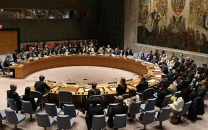
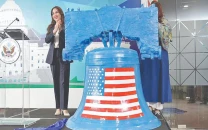

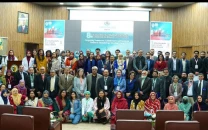

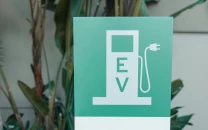












COMMENTS
Comments are moderated and generally will be posted if they are on-topic and not abusive.
For more information, please see our Comments FAQ